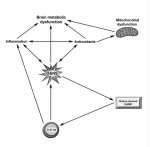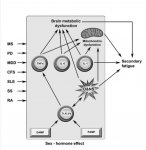Dechi
Senior Member
- Messages
- 1,454
@Orca I don't disagree with what he is saying. I think it depends on every case and it's a judgment call. He said to me that people like me (moderate) usually don't get better, so I suppose these would apply to milder cases.
He's also said he would test me again in 2 years to see if I am improving and if I am, I would surely be willing to start pushing myself a little, If I felt I could handle it. I mean, I can feel it in my body when I exercise at the moment, it just feels so wrong. If I improved I would know it.
And you know what ? Nobody is perfect and if you want to find things to disagree with any doctor, you will. Dr Hyde is a good man and a good doctor, but he's not perfect. He does a lot for his patients and he goes way beyond his duty. To me that's what matters and I am so grateful for him. Without him, I would be alone in my medical battle.
He's also said he would test me again in 2 years to see if I am improving and if I am, I would surely be willing to start pushing myself a little, If I felt I could handle it. I mean, I can feel it in my body when I exercise at the moment, it just feels so wrong. If I improved I would know it.
And you know what ? Nobody is perfect and if you want to find things to disagree with any doctor, you will. Dr Hyde is a good man and a good doctor, but he's not perfect. He does a lot for his patients and he goes way beyond his duty. To me that's what matters and I am so grateful for him. Without him, I would be alone in my medical battle.


